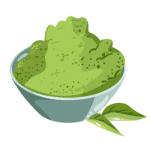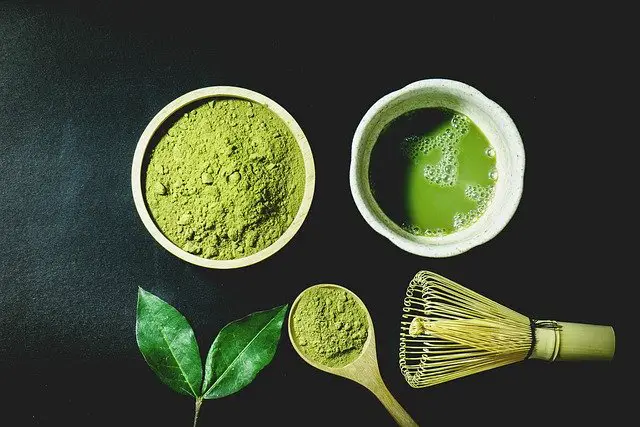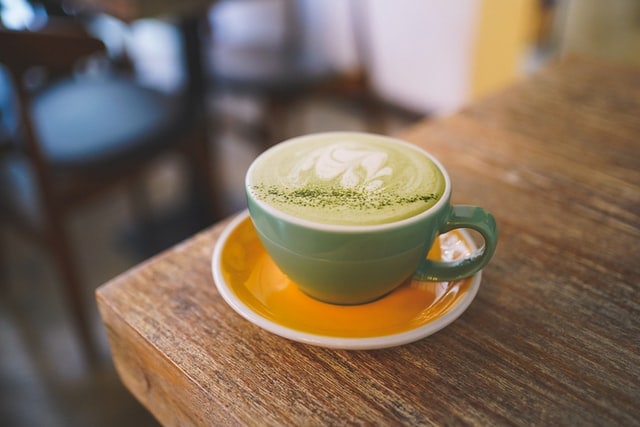
Matcha is often described as being vegetal, malty, and slightly bitter.
My clients are impressed by the health benefits of matcha but are wary of drinking a beverage that is quite so green. This is why I am often asked what does matcha taste like.
In this post, I break down the taste profile of matcha, compare it with green tea, and also show you how to make it taste great. Let’s begin!
Contents
Matcha has a distinct vegetal flavor.
This means that it has similar notes to edamame or seaweed.
At the same, these flavors are balanced out by malty and slighter bitter flavors.
There are many that will refer to the taste as being slightly grassy, or even earthy.
If this seems like an odd description for matcha flavor, be aware that this is the original version.
And, once you have come to appreciate these complexities, you will actually be able to enjoy the drink quite a bit.
What you are probably most curious about when it comes to matcha is whether it is sweet or bitter.
The sheer number of matcha drinks being offered in cafes would cause you to think that this drink is naturally sweet.
This isn't the case at all, though.
In reality, most people have no idea what “real” matcha tastes like.
This is because they tend to buy their drinks from cafes and tea shops.
Cafes will often sweeten their drinks quite a bit, making it seem like matcha is a rather sugary drink.
The truth is that matcha is mildly bitter.
Not in an unpleasant way, however, but in the same way that plain tea or black coffee is bitter.
Furthermore, there are other flavors in matcha that help to round the taste out.

As you are probably aware, matcha is a kind of green tea.
Nevertheless, as anyone can tell you, the flavors are rather different.
Truthfully, the actual differences in flavor will depend on the types of green tea and matcha consumed.
For instance, higher quality green tea can taste sweet, while lower quality ones will be bitter.
Then, there are some that are grassy, while others are nutty.
There is a world of difference between these two teas.
As such, it is nearly impossible to compare them directly.
On average, though, you could say that matcha has a smoother, slightly creamier taste to it.

Now, words like “earthy” and “vegetal” may not convince you to try matcha.
So, if these terms are off-putting, what can you do to make this drink taste better?
Well, it all starts with buying better quality matcha.
Understand, there are two grades of matcha – ceremonial and culinary grade.
On average, ceremonial is the higher grade, producing better-tasting matcha.
Culinary can be rather bitter and is best suited for food.
The main issue, though, is that there isn't too much regulation with how these teas are graded.
As such, virtually anyone can stamp “ceremonial” on the tea without actually ensuring the quality.
This is why it is important to buy a premium brand or to do your research.
Keep in mind that the ceremonial grade matcha will cost more.
Still, the taste will make it worth your while.
There is a chance that you may not enjoy matcha, even after trying out the ceremonial grade.
Thus, you may be wondering if your only avenue is to add milk and sugar to the drink.
When you do this, though, you compromise the health benefits of matcha.
Not to mention, you are increasing the calorie content of the beverage quite a bit as well.
So, it is best to stay away from milk and sugar.
If you still insist on adding these components, opt for low-calorie, non-dairy milk.
And, look for a healthier sweetener.
So there you have it – you now have some idea what matcha tastes like. You may feel a little braver about ordering your first cup.
If you enjoyed this post, head over to our Pinterest page. We have plenty of more information on matcha and how to drink it.
